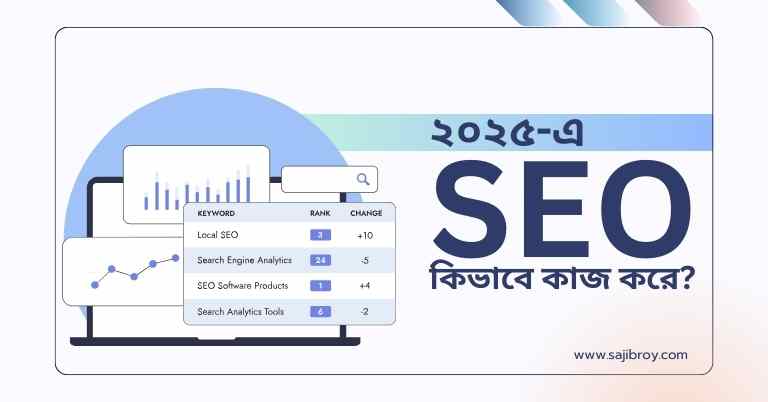There is no definitive answer to this question as it depends on a number of factors, including the competitiveness of your chosen keywords and how well they are integrated into your website’s content. However, as a general rule of thumb, it is advisable to use between 5 and 10 meta keywords for SEO purposes.
| At a Glance |
|---|
| Meta keywords are important for two reasons: first, they help search engines understand what your website is about; second, they can help improve your website’s ranking in search engine results pages (SERPs). Here are the top 8 meta keywords that you should use in 2024: 1. SEO 2. Content marketing 3. Social media marketing 4. Email marketing 5. Web design 6. Graphic design 7. User experience (UX) 8. Call-to-action (CTA) |
If you’re wondering how many meta keywords you should use for SEO, the answer is not as simple as you might think. While there’s no magic number, there are a few things to keep in mind that can help guide your decision.
First, it’s important to understand that Google and other search engines don’t actually pay attention to the meta keywords tag anymore.
So, if you’re stuffing your keywords in there hoping for a boost in rankings, you’re likely wasting your time. However, that doesn’t mean that meta keywords are completely worthless. There are still a few reasons why you might want to use them.
For one, they can help give search engines an idea of what your page is about if your title and description aren’t very descriptive. Including a few relevant keywords can help ensure that your page comes up when people are searching for those terms. Additionally, some other search engines besides Google do still look at the meta keywords tag.
So, if you’re aiming for good coverage across all search engines, it’s worth including a few key phrases in the tag. Just don’t go overboard – a couple of dozen keywords should be plenty.
Let's See the Topic Overview
Can You Have Too Many Meta Keywords?
If you’re wondering whether you can have too many meta keywords on your website, the answer is maybe.
While there’s no solid evidence that having a large number of keywords will hurt your website’s ranking, it could potentially be considered keyword stuffing, which is an unethical SEO practice.
So, if you’re including a lot of keywords in your meta tags, make sure they’re relevant to the content on your page and that you’re not just trying to stuff as many keywords as possible onto your site.
How Long Should SEO Meta Keywords Be?
There is no definitive answer to this question as it depends on a number of factors, including your business goals and the competitiveness of your industry. However, in general, you should aim for keywords that are 2-5 words in length.
Longer keywords (5+ words) tend to be more specific and therefore can be more effective in driving targeted traffic to your site.
However, they can also be more difficult to rank for due to increased competition. shorter keywords (2-3 words) are easier to rank for but may not be as effective in driving relevant traffic.
Ultimately, the best approach is to mix both long and short keywords together in your SEO strategy.
Are Meta Keywords Still Relevant in 2024?
Meta keywords are still relevant in 2024 because they help identify the topic of a web page to search engines. By including relevant keywords in the meta tags, you can improve your chances of appearing in search results when someone searches for those terms.
However, you should not stuff your meta tags with dozens of keywords; this will likely have the opposite effect and may even get you penalized by Google.
Choose a handful of relevant keywords or phrases and include them in your tags sparingly.
Do Meta Keywords Hurt SEO?
Meta keywords are a type of HTML tag that provides information about a web page to search engines. The Meta keyword tag is placed between the and tags in the HTML code of a web page, and usually contains relevant keywords for the page.
While meta keywords were once used by search engines to help determine the content of a web page, they are no longer given much weight in modern SEO.
In fact, using too many meta keywords on a page can actually hurt your SEO, as it may be seen as keyword stuffing by search engines.
It’s important to strike a balance with your use of meta keywords – use enough to accurately describe your page content, but don’t overdo it.
Is Meta Keywords Important for SEO?
Are Meta Keywords Important for SEO? This is a question that has been debated for years in the SEO community.
On one side, there are those who believe that meta keywords are still an important ranking factor, while others believe that they’re no longer relevant.
So, what’s the truth? Are meta keywords still important for SEO? Let’s take a look.
What are Meta Keywords? Meta keywords are HTML tags that you can use to provide additional information about your web page to search engines. They look like this:
In the past, some webmasters would stuff their meta keywords tag with hundreds of irrelevant keywords in an attempt to game the system and rank higher in search results. However, search engines quickly caught on to this tactic and began ignoring meta keywords altogether. As a result, many SEO experts now believe that meta keywords are no longer relevant.
Meta Keywords SEO Example
If you’re wondering what meta keywords are and how they can benefit your SEO efforts, look no further! What are Meta Keywords?
Meta keywords are HTML tags that provide information about a web page’s content that you can insert into the head section of your web pages. They are used by search engines to index and rank pages in their results. These tags are placed in the section of a webpage’s code and look like this:
As you can see, each tag has a “name” attribute and a “content” attribute. The name attribute tells the search engine what the tag contains, while the content attribute provides the actual information.
In this case, our meta keywords tag is telling the search engine that our page is about SEO and that it contains information on meta keywords and ranking factors. Meta keywords play an important role in SEO because they help search engines understand what a page is about.
To add Meta Keywords to your pages, simply insert the following code into the section of your HTML:
Replace KEYWORDS with a list of relevant keywords for your page. Make sure to separate each keyword with a comma.
For example, That’s all there is to it!
When used correctly, they can be very beneficial in improving a page’s ranking in SERPs (search engine results pages). However, if abused or used incorrectly, they can actually hurt your rankings. This is why it’s so important to use them wisely!
Just remember to use relevant and popular keywords, as stuffing your Meta Keywords with too many irrelevant keywords can actually hurt your ranking.
Does Google Use Meta Keywords?
Google has not used meta keywords in web ranking since 2009. This was confirmed by Matt Cutts, then head of Google’s webspam team. Meta keywords are tags that you can add to your website’s code which provide information about your site to search engines.
They are intended to help search engines index your site and determine what it is about.
Prior to 2009, Google did use meta keywords in its ranking algorithm. However, they were easy to manipulate and stuffed with irrelevant keywords which led to a poor user experience.
As a result, Google stopped using them in its ranking algorithm. Despite this, some SEO experts still believe that meta keywords can be helpful in other ways. For example, they can help you track which keyword phrases people are using to find your site in the search engines.
In addition, they can give you an idea of the topics that people are interested in when it comes to your business or website.
How to Add Meta Keywords in WordPress?
If you want your website to rank well in search engine results, it’s important to use meta keywords. Meta keywords are simply words or phrases that describe the content of your page. When you add meta keywords to your WordPress site, they help search engines understand what your site is about and index it accordingly.
Adding meta keywords to WordPress is easy. Just follow these steps:
- Login to your WordPress dashboard and go to the ‘Settings’ tab.
- Click on the ‘General’ sub-tab and scroll down to the ‘Meta Keywords’ section.
- Enter your desired keywords into the ‘Meta Keywords’ field, separating each one with a comma.
Meta Keywords Generator
In the SEO world, meta keywords are one of those topics that come up time and time again. Many people believe that they’re no longer relevant, while others see them as an essential part of their optimization strategy. So, what’s the truth?
Are meta keywords still important? The short answer is: probably not. The long answer is a little more complicated.
Meta keywords are tags that you can add to your website’s code to help search engines understand what your site is about. They used to be a major factor in how sites were ranked, but today, most search engines don’t give them much weight. There are a few exceptions – Bing is one search engine that does use meta keywords as part of its ranking algorithm – but for the most part, they’re not something you need to worry about.
So why do some people still believe that meta keywords are important? There are a few reasons:
- They’re an easy way to stuff keywords onto a page.
In the early days of SEO, it was common for people to stuff their pages full of meta keywords in an attempt to game the system and get higher rankings. This doesn’t work anymore, but some people still think it does.
- They’re an easy way to measure keyword density.
Keyword density is no longer a major ranking factor, but it’s still something some people look at when optimizing their pages (even though it’s not very accurate). Meta keywords make it easy to check keyword density without having to analyze the entire page text.
- Some people believe that since Google doesn’t use meta keywords anymore, other search engines must not either.
This isn’t true – as we mentioned before, Bing does use them – but it’s a common misconception.
- People sometimes confuse “meta tags” with “meta keywords.”
Meta tags include things like the page title and description, which are both important elements of on-page optimization. Meta keywords are just one type of meta tag, and they’re not nearly as important as many people think they are.
Meta Keywords Vs Meta Description
When it comes to optimizing your website for search engines, you may have come across the terms “meta keywords” and “meta descriptions.” But what exactly are these things? And what is the difference between them?
Meta keywords are simply a list of words that relate to the content on your website. They provide a brief description of what your site is about and help search engines index your site properly. Meta descriptions, on the other hand, are the short paragraphs of text that appear under your website’s title in search engine results pages (SERPs).
These descriptions give searchers an overview of what they can expect to find on your site, so it’s important to make them clear and concise. So, which one is more important? In truth, neither meta keywords nor meta descriptions hold as much weight as they used to in terms of SEO.
However, that doesn’t mean they should be ignored altogether. A well-written meta description can still help entice people to click through to your website, while relevant meta keywords can help improve your chances of appearing in relevant search results.
Conclusion
If you’re wondering how many meta keywords you should use for SEO, the answer is not as simple as you might think. While there is no magic number, there are a few things to keep in mind when deciding how many meta keywords to use.
- First, remember that meta keywords are just one of many factors search engines consider when ranking websites. So, while they’re important, they’re not everything.
- Second, don’t stuff your keywords! This will only hurt your chances of ranking well. A few well-chosen keywords are better than a long list of keywords that don’t really say anything about your website.
- Finally, keep in mind that your meta keywords should be relevant to the content on your website. If you’re targeting a specific keyword or phrase, make sure those words appear somewhere on your website so the search engine can make the connection.
Keep Learning With Sajib Roy




![6-Month Local SEO Plan [Download Your Complete Proposal Template]](https://www.sajibroy.com/wp-content/uploads/2025/01/6-Month-Local-SEO-Plan-Download-Your-Complete-Proposal-Template.jpg)








I’m always excited to see what you post on your blog because each time is a new adventure! I love reading through all of them, and it’s such an honor when someone leaves me their own thoughts in the comments section. Keep up the good work by leaving some feedback for others too 🙂
This post is a great reminder that while meta keywords are important for SEO, they shouldn’t be the sole focus of your optimization efforts. The tips on how to choose relevant and specific keywords, and how to optimize your content for those keywords, were incredibly useful. I’ll definitely be referring back to this post as I continue to improve my website’s search engine rankings.
I’ve been using meta keywords for SEO for a while now, but I still found this post to be really useful. The advice on how to choose the right keywords and how many to use was spot on. I also appreciated the emphasis on creating high-quality content that aligns with your keywords. Thanks for sharing your insights!
“This is such an informative post! As someone who is new to SEO, I found the explanation of meta keywords and how to use them really helpful. The tips on how many meta keywords to use and how to optimize them for search engines were especially valuable. Thank you for sharing your expertise!”